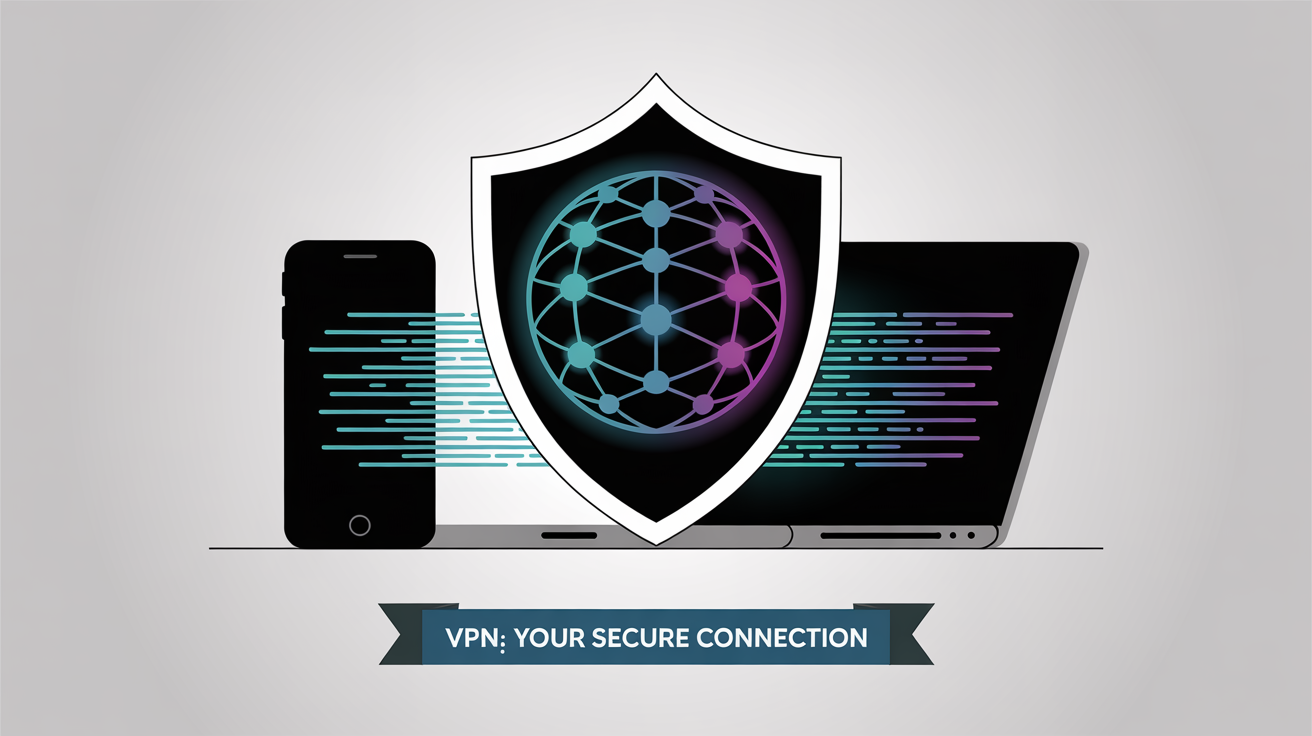First what is a VPN?
VPN is short for Virtual Private Network. So what?
Here’s what a VPN does in plain English:
- When you connect to the internet normally, your device talks directly to websites or services, and your IP address (think of it like your digital home address) is visible to them and anyone snooping around.
- A VPN sits between you and the internet. Instead of your data going straight out, it gets encrypted (scrambled so nobody can read it) and then sent through a secure tunnel to a VPN server somewhere else.
- From that VPN server, your data heads out to the website or service you want to reach — but it looks like it’s coming from the VPN server’s location, not your real location.
- So, the VPN hides your real IP address, encrypts your traffic, and keeps your online activities private and secure from prying eyes like hackers, ISPs, or government watchers.
Think of it like this: If the internet is a highway, normally you’re driving in a car with your license plate visible to everyone. Using a VPN is like driving inside a sealed armored truck that takes a detour through a secret route—no one can see what you’re carrying or where you actually started.
Make sense?
Here’s the lowdown on the pros and cons of using a VPN.
Pros of Having a VPN:
- Privacy on Steroids: Your IP address gets masked, so snoopers, ISPs, or those pesky trackers can’t easily link your browsing back to you.
- Security Boost: Especially on public Wi-Fi—VPNs encrypt your data, making it way harder for hackers to intercept your stuff.
- Bypass Geo-Blocks: Want to stream that exclusive show only available in another country or access region-locked content? VPNs make you look like you’re somewhere else.
- Avoid Bandwidth Throttling: Some ISPs slow down your speed if they detect heavy streaming or torrenting; VPNs can hide that, keeping your speed up.
- Safe Remote Access: For businesses, VPNs enable secure access to internal networks from anywhere.
Cons of Having a VPN:
- Speed Hit: Encryption and rerouting your traffic through a VPN server adds latency. You’ll notice slower speeds, sometimes a lot, depending on the provider and server load.
- Cost: Good VPNs aren’t free. Sure, there are free options, but they often have limits or shady data policies.
- Trust Factor: You’re essentially shifting trust from your ISP to the VPN provider. If the VPN logs your activity or sells your data, you’re back to square one.
- Compatibility Issues: Some websites and services actively block VPN IP ranges. So sometimes your “secret identity” is busted, and you can’t access certain sites.
- Legal/Policy Risks: In some countries, VPNs are restricted or illegal, so using one could get you in trouble.
Bottom Line:
If you care about privacy, streaming freedom, or securing your connection—especially on public Wi-Fi—a VPN is a smart tool to have. But don’t expect it to make you invisible or immune to all threats. And pick your provider carefully; you want one that’s transparent and doesn’t log your business.

